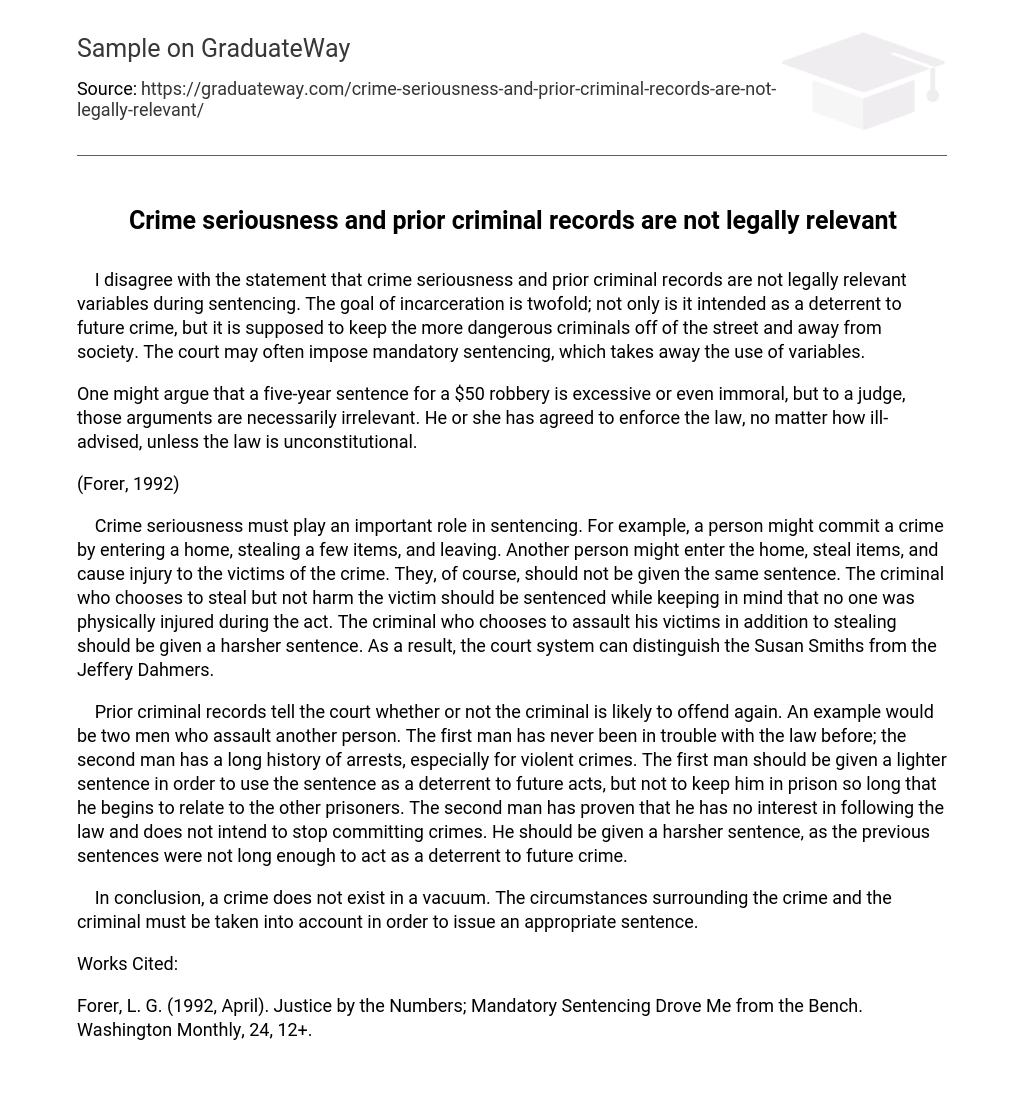I disagree with the statement that crime seriousness and prior criminal records are not legally relevant variables during sentencing. The goal of incarceration is twofold; not only is it intended as a deterrent to future crime, but it is supposed to keep the more dangerous criminals off of the street and away from society. The court may often impose mandatory sentencing, which takes away the use of variables.
One might argue that a five-year sentence for a $50 robbery is excessive or even immoral, but to a judge, those arguments are necessarily irrelevant. He or she has agreed to enforce the law, no matter how ill-advised, unless the law is unconstitutional.
(Forer, 1992)
Crime seriousness must play an important role in sentencing. For example, a person might commit a crime by entering a home, stealing a few items, and leaving. Another person might enter the home, steal items, and cause injury to the victims of the crime. They, of course, should not be given the same sentence. The criminal who chooses to steal but not harm the victim should be sentenced while keeping in mind that no one was physically injured during the act. The criminal who chooses to assault his victims in addition to stealing should be given a harsher sentence. As a result, the court system can distinguish the Susan Smiths from the Jeffery Dahmers.
Prior criminal records tell the court whether or not the criminal is likely to offend again. An example would be two men who assault another person. The first man has never been in trouble with the law before; the second man has a long history of arrests, especially for violent crimes. The first man should be given a lighter sentence in order to use the sentence as a deterrent to future acts, but not to keep him in prison so long that he begins to relate to the other prisoners. The second man has proven that he has no interest in following the law and does not intend to stop committing crimes. He should be given a harsher sentence, as the previous sentences were not long enough to act as a deterrent to future crime.
In conclusion, a crime does not exist in a vacuum. The circumstances surrounding the crime and the criminal must be taken into account in order to issue an appropriate sentence.
Works Cited:
Forer, L. G. (1992, April). Justice by the Numbers; Mandatory Sentencing Drove Me from the Bench. Washington Monthly, 24, 12+.





